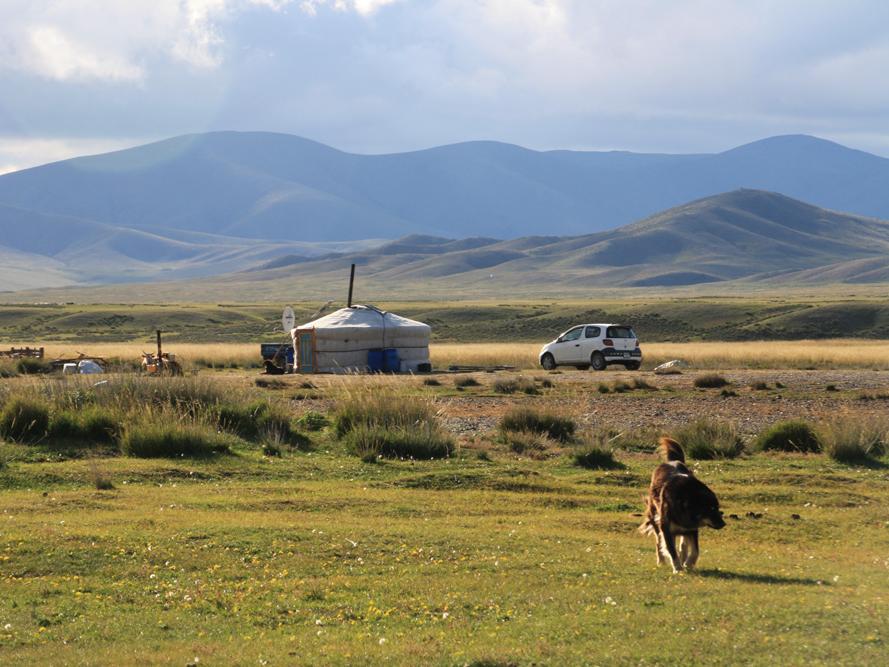While mobile grazing systems have declined sharply worldwide in recent decades, Mongolia is home to one of the last intact steppe ecosystems with traditional land use and significant biodiversity. Since the 1990s, however, extractive industries likemining and oil production for the Mongolian economy have increasingly gained in importance. At the same time, growing urbanisation is pushing what used to be the most important pastoral agriculture, i.e. land use with mobile pasture farming, out of the steppes and increasingly into the vicinity of settlements and cities.
The aim of the German-Mongolian research project MORE STEP is to identify at an early stage which developments could lead to the destruction of the steppe ecosystem. This is necessary in order to prevent irreversible processes such as soil degradation or loss of the ability of wild animals (e.g. gazelles) to migrate due to fenced-in infrastructure measures, but also social processes such as loss of nomadic lifestyle. The interdisciplinary research project MORE STEP deals exactly with this social-ecological issue.
The Mobility of nomads is a key factor for the preservation of the steppe
The mobility of herders and their animals is a crucial key to the conservation of the steppe – and thus central to land use management. The aim is to create conditions that enable or increase the mobility of herders and one has to keep in mind that time is pressing here, as a new generation is now growing up in an urban environment no longer familiar with the traditional nomadic way of life. Not only is the formerly close connection between man and nature vanishing, but there is also the danger of losing knowledge on how to handle grazing animals, plants and soil with the inherent risk of decreasing biodiversity.
In order to better understand the far-reaching social transformations in Mongolia, the research team is closely working together with relevant local partners and are investigating the influence on development processes by such diverse groups as nomads, mining or oil companies, governmental and non-governmental organisations. The issues at hand are discussed at stakeholder workshops under the leadership of ISOE together with the above-mentioned actors. Complementary expert interviews as well as qualitative interviews with representatives of relevant social groups will also serve to record the perception and assessment of the current social transformation processes in Mongolia.
The policy brief “Keep on moving. How to facilitate nomadic pastoralism in Mongolia in the light of current societal transformation processes“ describes what kind of support is needed from the administration and government to ensure that the nomadic way of life can continue, and how a multi-level governance approach can increase the attractiveness of nomadic pastoralism.
This year's theme for World Conservation Day is "Preserving all life on earth". It addresses wild animal and plant species as key components of global biodiversity. More at: www.wildlifeday.org
